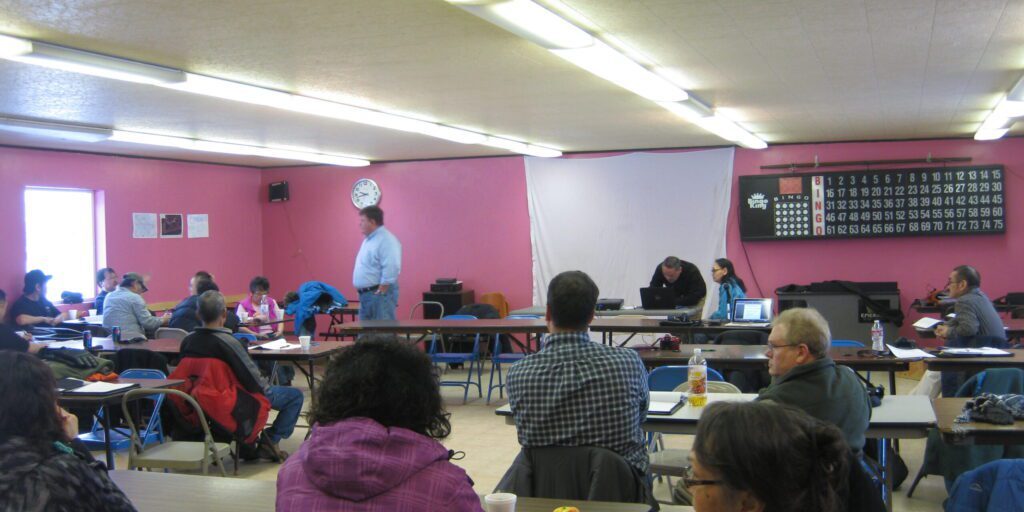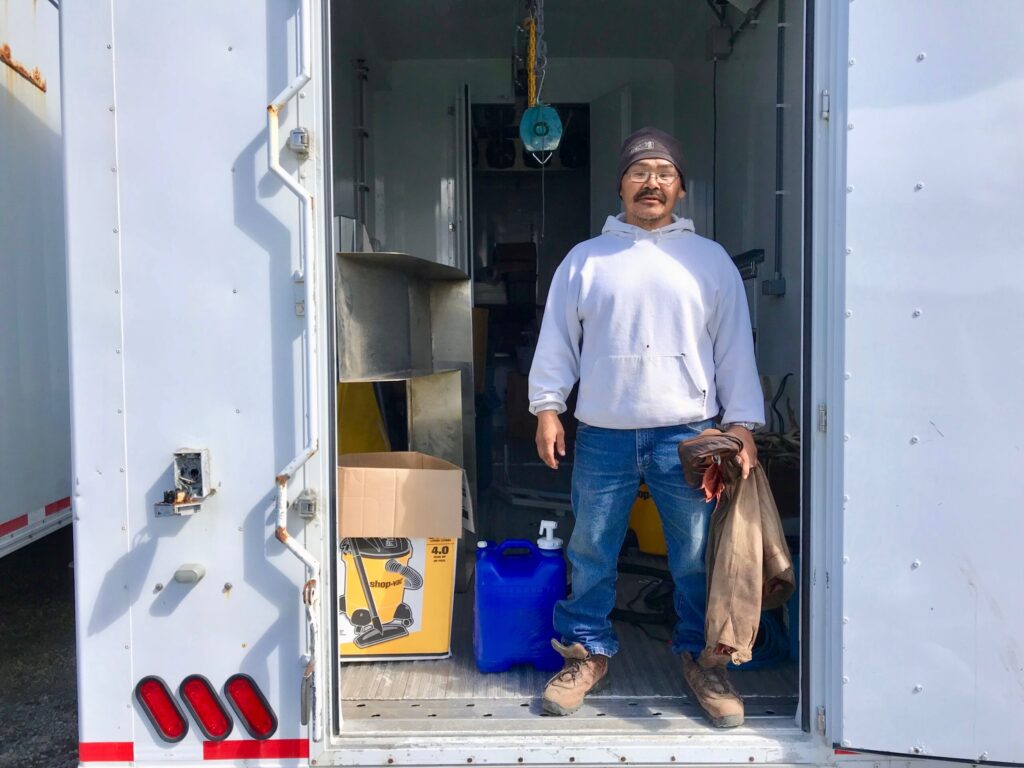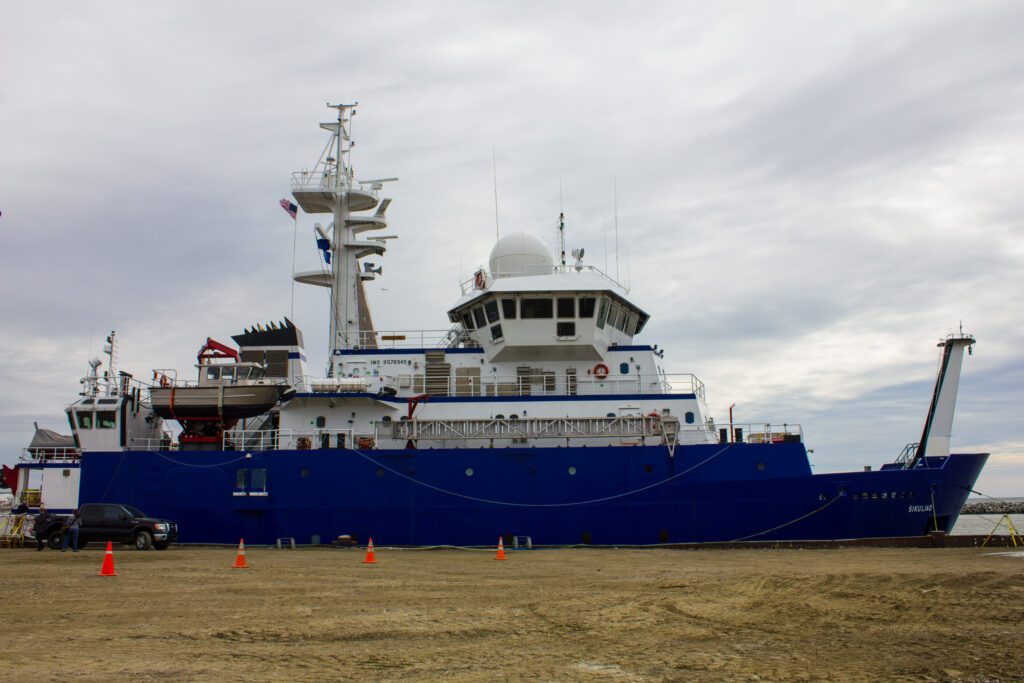The Arctic Resource and Development Meeting in Gambell continued into its second day yesterday.
The Bering Sea Alliance LLC organized the meeting to explore infrastructure, resource, and oil spill mitigation in the region. The Alliance is a for-profit organization composed of seven Bering Strait village corporations. They say development is already occurring, and the communities want to benefit—with jobs— while protecting their subsistence way of life.
But with many delayed or absent due to weather, the conversation took an international turn.
Over the two-day session a top concern arose: What is the United States’ current relationship with Russia in regards to the Arctic? Mark Fesmire with the Bureau of Safety and Environmental Enforcement—or BSEE—addressed the issue. BSEE creates regulations for oil and gas drilling.
And Fesmire said, “We would like to continue negotiating with them, but the events in Crimea have made that kind of difficult. So as of my last instructions, we are to continue discussions with them, but we are not to go to events that are located in Russia.”
Those discussions, Fesmire said, involve creating standards for source control and containment, processes that minimize oil reaching the surface. Fesmire said neither Russia nor the United States has these standards. Though, he said, the U.S. is in the drafting phase.
“So if we get together; we talk about the best practices; we talk about what has worked— and we do have things that have worked in the Arctic— and can help the Russians understand the benefit of having that sort of equipment, we think that that would be a significant benefit to all the Arctic community,” Fesmire explained.
Fesmire said a group on the Arctic Council is creating an inventory of oil spill response equipment for all Arctic nations. The hope is to shorten the response time from one country to another in case of an emergency.
“There are significant issues with taking equipment across boundaries.” Fesmire continued, “We think that it would be a better environmental footprint if we could share this equipment and didn’t have to duplicate it when it’s right there in the same location.”
Then Fesmire was asked if a plan existed between the U.S. and Russia to deal with an oil spill in the Bering Sea.
His response: “Not yet, but that’s one of the things that we’re working on.
For now, Fesmire said, all U.S. drillers are required to carry oil spill response equipment on board. If a vessel accident causes a spill, Fesmire said, that would fall under Coast Guard jurisdiction. Coast Guard handles shipping. BSEE handles drilling.
The Coast Guard was invited to attend the meeting but bowed out when poor weather kept planes from landing on the island. Other entities like the U.S. Army Corp of Engineers and the Alaska Industrial Development and Export Authority did not attend for the same reason.
With key players absent and weather delaying the meeting, attendees heard a series of presentations instead of Arctic planning.
A similar meeting is tentatively scheduled in Gambell for August 13 and 14, 2014.







